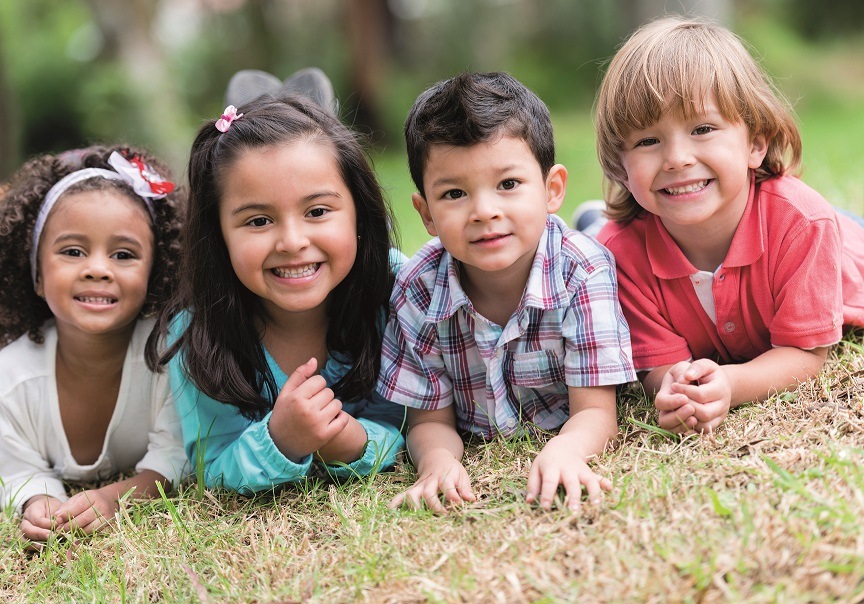Adoption Vs Biological Parenting: A Comparative Insight
When considering adoption vs biological parenting, both offer distinctive impacts on family dynamics and child upbringing. Adoption provides a nurturing environment through legal processes and emotional bonds. Genetic ties in biological parenting influence parental rights and emotional connections. Identity formation, parent-child dynamics, and societal perceptions shape the perspectives surrounding these approaches. Understanding the interplay between nature and nurture is essential for supporting children. Exploring support systems and long-term considerations can enhance family well-being. Each path presents unique challenges and rewards in fostering healthy relationships and child development. Discover more insights into these impactful aspects of parenting.
Key Takeaways
- Biological parenting emphasizes genetic continuity and evolutionary psychology.
- Legal adoption offers stability, rights, and responsibilities for child development.
- Emotional bonds in adoption are nurtured through attachment styles and trust building.
- Identity formation differs in biological parenting and adoption due to genetic vs environmental influences.
- Societal perceptions and support systems play crucial roles in adoption and biological parenting dynamics.
Historical Perspectives

Throughout history, the societal views and practices surrounding adoption and biological parenting have evolved substantially, reflecting cultural norms and beliefs. Cultural norms play a pivotal role in shaping perceptions towards adoption and biological parenting.
Evolutionary psychology suggests that the preference for biological parenting stems from a primal instinct to secure genetic continuity and familial legacy. This preference has historically been deeply ingrained in many societies, influencing family structures and defining societal roles.
Family structures have been heavily influenced by historical perspectives on adoption and biological parenting. The emphasis on bloodlines and biological ties has led to a traditional view that biological relationships are paramount for a child’s development. This perspective has had significant psychological implications, impacting how individuals perceive their identity and sense of belonging within their families.
Understanding the historical context of adoption and biological parenting provides valuable insights into the deeply rooted cultural norms and psychological implications that have shaped these practices over time.
Legal Implications
You should consider the legal implications when comparing adoption to biological parenting.
It’s essential to understand the rights that adoptive parents have and the responsibilities that biological parents hold.
These legal aspects play a significant role in shaping the dynamics of both forms of parenting.
Rights of Adoptive Parents
Adoptive parents gain legal rights and responsibilities through the formal adoption process, ensuring they have the authority to make important decisions for the child. This legal framework provides a solid foundation for the parent-child relationship.
The benefits of adoption are vast, including the ability for adoptive parents to provide a stable and nurturing environment for the child’s growth and development. However, along with these benefits come certain legalities that adoptive parents must adhere to, such as meeting the requirements set forth by adoption agencies and courts.
Navigating parental rights can also pose challenges for adoptive parents. Understanding the legal implications of adoption and ensuring compliance with all regulations can be complex and time-consuming. Additionally, adoptive parents may face difficulties in asserting their rights in situations where biological parents are involved or when dealing with issues related to custody or visitation rights.
Despite these challenges, the legal rights granted to adoptive parents are essential in establishing a secure and loving environment for the child.
Biological Parent Responsibilities
Legal implications surrounding biological parent responsibilities are important to contemplate in the context of adoption and parenting dynamics. When discussing child upbringing, biological parents hold certain legal responsibilities that stem from their genetic inheritance. These responsibilities include providing financial support, ensuring the child’s well-being, and making important decisions regarding the child’s upbringing.
From a legal standpoint, biological parents are typically obligated to support their children financially until they reach the age of majority or become emancipated.
Moreover, genetic inheritance plays a significant role in determining parental rights and responsibilities. Biological parents have a natural bond with their children due to genetic connections, which can impact custody arrangements and visitation rights in cases of separation or divorce.
Understanding these legal implications is important for both biological parents and the legal system to make sure the best interests of the child are prioritized in matters concerning upbringing and genetic inheritance.
Emotional Bonds

When considering emotional bonds in adoption versus biological parenting, it’s essential to analyze the unique dynamics that shape bonding in each scenario.
The presence of biological ties can influence the initial bond between parent and child, while in adoption, the bond may develop through shared experiences and mutual understanding.
Understanding the interplay between biological connections and bonding dynamics is vital in comparing the emotional relationships formed in adoption and biological parenting.
Bonding Dynamics in Adoption
Establishing emotional bonds in adoption is a complex and essential process that greatly impacts the relationship between the child and their adoptive parents. Attachment styles and bonding dynamics play a pivotal role in shaping the emotional connections between the child and the adoptive family.
Trust building is a foundational aspect of bonding dynamics in adoption, where the child learns to rely on their adoptive parents for support, care, and security.
The process of bonding in adoption involves creating a sense of belonging and security for the child within the new family unit. Adoptive parents need to demonstrate consistency, empathy, and patience to foster a strong emotional connection with the child.
Understanding the child’s unique needs and providing a nurturing environment are essential for building trust and establishing a secure attachment.
Effective communication, active listening, and showing affection are key components of developing strong bonding dynamics in adoption. By prioritizing the emotional well-being of the child and being responsive to their needs, adoptive parents can create a loving and supportive family environment that promotes healthy attachment and emotional growth.
Biological Ties and Bonding
Biological ties inherently contribute to the formation of emotional bonds between parent and child, influencing the dynamics of attachment and familial relationships. The genetic connection shared between biological parents and their offspring is believed to play a significant role in shaping emotional attachment. Studies suggest that the biological link fosters a sense of familiarity and belonging, which can impact the depth of emotional bonding experienced by both parent and child.
Emotional attachment in biological parenting is often considered to be rooted in evolutionary biology, where the natural instinct to care for one’s genetic offspring is a fundamental aspect of human behavior. This innate drive can create a unique bond characterized by a deep sense of connection and understanding between parent and child.
The emotional ties formed through biological relationships are thought to influence various aspects of familial dynamics, such as communication patterns, conflict resolution, and overall family cohesion.
Identity Formation

Identity formation greatly influences an individual’s sense of belonging and self-perception, regardless of their method of becoming a parent. The ongoing debate of nature vs nurture plays a significant role in understanding how individuals develop their identities.
While biological parenting emphasizes the genetic and inherent traits passed down from parents to children, adoption brings forth the concept of self-discovery through environmental influences and experiences.
For individuals raised by biological parents, aspects of their identity may be connected to familial traits, physical resemblances, and genetic predispositions. On the other hand, adopted individuals often navigate their identity formation through the lens of environmental factors, cultural backgrounds, and personal experiences that shape their sense of self.
Both biological and adopted individuals engage in the process of self-discovery to establish a coherent identity. Despite the differing influences, the journey towards identity formation is an essential aspect of human development that transcends the methods through which one enters parenthood.
Parent-Child Dynamics
Understanding the dynamics between parents and children is essential for fostering healthy relationships and promoting emotional well-being in the family unit. Attachment styles play an important role in shaping these dynamics, influencing how secure and trusting the parent-child relationship is.
Communication patterns further enhance these relationships, with open and honest communication fostering a deeper connection between parents and children.
Discipline techniques also greatly impact parent-child dynamics. The way discipline is approached can either strengthen the relationship or create tension within the family. Consistent and fair discipline methods that focus on teaching rather than punishment often lead to healthier dynamics.
Moreover, family traditions play a crucial role in shaping parent-child dynamics. These traditions create a sense of unity and belonging within the family, strengthening the bond between parents and children. They provide a framework for shared experiences and values, further solidifying the family unit.
Ultimately, a combination of secure attachment styles, effective communication patterns, positive discipline techniques, and meaningful family traditions contributes to nurturing strong and harmonious parent-child dynamics.
Societal Perceptions

In contemporary society, adoption is often viewed through a lens that contrasts it with traditional biological parenting practices. Cultural norms play a significant role in shaping societal perceptions of adoption.
Stereotypes surrounding adoption, such as concerns about genetic influences and the ability to bond with non-biological children, can lead to misconceptions and biases.
Parental expectations also influence how adoption is perceived. Some parents may struggle with the idea of not sharing a biological connection with their child, leading to stigmas around adoptive families.
These stigmas can create barriers to acceptance and support for adoptive parents and children.
Moreover, societal views on adoption are evolving, challenging outdated beliefs and promoting inclusivity.
By debunking myths and highlighting the love and commitment that define family, attitudes towards adoption can become more positive and accepting.
It’s essential to continue breaking down barriers and promoting understanding to create a more supportive environment for all families, regardless of how they’re formed.
Genetic Influences
Societal perceptions of adoption often center around concerns regarding genetic influences on children’s development, shaping attitudes towards the role of biological factors in parenting.
The debate surrounding nature versus nurture plays a significant role in understanding how genetic predispositions impact a child’s growth and behavior. While adoptive parents may not share biological ties with their children, inherited traits and family genetics are essential factors to take into account in shaping a child’s future.
Research suggests that genetic predispositions can influence various aspects of a child’s life, including their temperament, intelligence, and even susceptibility to certain health conditions. Adopted children may not have a direct genetic link to their adoptive parents, but family genetics still play an important role in shaping a child’s overall development.
Understanding the interplay between nature and nurture is vital for adoptive parents to provide the necessary support and environment for their children to thrive despite potential genetic influences.
Support Systems
Effective support systems are essential for adoptive parents to navigate the challenges and complexities of raising children who may not share a genetic connection with them. Family structure plays a critical role in providing a stable environment for both the adoptive parents and the child. Supportive family members can offer understanding and assistance as the family adjusts to the new dynamics.
Counseling services can also be invaluable in helping adoptive parents address any emotional or psychological issues that may arise during the adoption process or while raising the child. These services can provide a safe space for parents to express their feelings, seek guidance, and learn effective parenting strategies.
Community involvement is another important aspect of a strong support system for adoptive parents. Engaging with other adoptive families or support groups can offer a sense of belonging, shared experiences, and practical advice. Additionally, community resources may provide access to financial assistance, which can alleviate some of the financial burdens associated with adoption and parenting.
Future Considerations
Considering the long-term implications of adoption versus biological parenting is vital for making informed decisions about your family’s future dynamics. When looking ahead, it’s important to acknowledge potential parenting challenges that may arise from adoption stigma. Adoptive parents might need to navigate societal misconceptions and prejudices, impacting both themselves and their children.
Parental roles play a significant part in shaping a child’s development. In adoption, understanding how to foster a secure attachment, especially if the child has experienced trauma or loss, is pivotal.
Biological parenting also carries its unique set of considerations, such as genetic influences on a child’s health and personality traits.
Looking towards the future, it’s crucial to recognize that both adoption and biological parenting come with their own strengths and challenges. By being proactive in addressing potential obstacles and seeking support, you can cultivate a nurturing environment for your family’s growth and well-being.
Ultimately, staying informed and adaptable as a parent will help you navigate the complexities of raising children, regardless of the path you choose.
Frequently Asked Questions
Are There Any Cultural Considerations When Choosing Adoption or Biological Parenting?
When deciding between adoption or biological parenting, cultural influences and family traditions play a significant role. These factors shape your parenting journey, impacting how you connect with your child and pass on values.
How Do Adopted Children View Their Birth Parents in Comparison to Their Adoptive Parents?
When considering birth parent relationships versus adoptive parent bonds, adopted children often navigate complex emotions. They may view birth parents with curiosity or longing, while forming deep connections and love with their adoptive parents, shaping their identities.
What Impact Does Infertility Have on the Decision Between Adoption and Biological Parenting?
When facing infertility, individuals experience emotional struggles and ethical dilemmas in deciding between adoption and biological parenting. The desire for biological connection may clash with the moral obligations and practical considerations of adoption.
Do Adopted Children Face Different Challenges in Forming Relationships Compared to Biological Children?
When you consider attachment struggles and social integration, adopted children might face different challenges compared to biological children. Trust issues and identity formation can also influence relationships, highlighting unique experiences for adopted individuals.
How Do Siblings in Mixed Families Navigate the Dynamics of Adoption Vs Biological Parenting?
In mixed families, sibling dynamics can be intricate when managing relationships between adopted and biological siblings. Understanding each other’s perspectives, fostering open communication, and promoting mutual respect are essential for creating harmonious family dynamics.
Conclusion
To sum up, the comparison between adoption and biological parenting reveals complex dynamics that influence the relationship between parents and children.
While both forms of parenting offer unique advantages and challenges, it’s important to recognize the significance of emotional bonds, societal perceptions, and genetic influences in shaping the parent-child relationship.
Moving forward, understanding and addressing these factors can contribute to creating supportive environments for both adopted and biological children to thrive and develop.

Hey there! 👋 I’m a proud mom and passionate writer, sharing my parenting journey. 📝 Join me as I navigate the ups and downs of motherhood, offering tips, advice, and a sprinkle of humor along the way. 🌟








